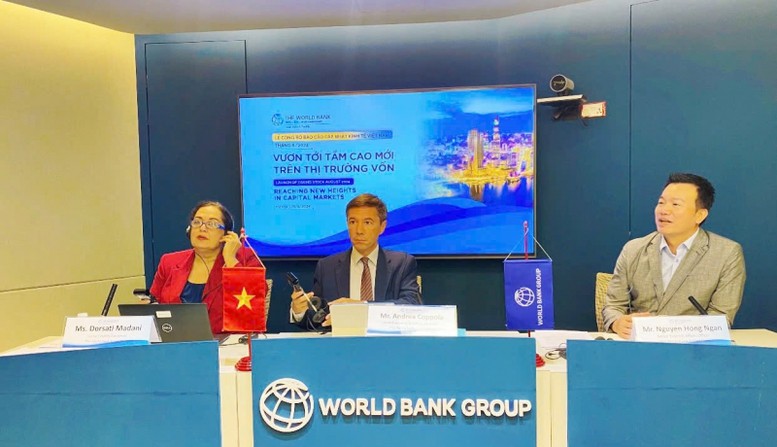 |
| At the August 26 ceremony releasing the WB's latest bi-annual economic report on Vietnam Taking Stock. (Photo: VGP) |
The economy is forecast to grow 6.1% in 2024, and 6.5% in both 2025 and 2026, up from 5% last year, according to the bank’s latest bi-annual economic report on the country Taking Stock.
Highlighting the resilience of the Vietnamese economy despite rising global challenges, the report titled “Reaching New Heights in Capital Markets” notes that the economy is not yet back to its pre-pandemic growth path.
Enhanced public investment would provide short-term stimulus while also addressing emerging infrastructure gaps – for example in energy, transport, and logistics – which are becoming a growing constraint on growth, it said. Bank asset quality remains a concern given rising non-performing loans (NPLs) and should be closely monitored by the authorities.
“During the first half of the year, Vietnam’s economy benefited from the rebound in export demand,” said WB East Asia and Pacific Practice Manager for Macroeconomics, Trade, and Investment Sebastian Eckardt. “To sustain growth momentum not only for the rest of the year but over the medium-term, the authorities should deepen structural reforms, step up public investment while carefully managing emerging financial risks.”
A special chapter of the report finds that development of capital markets would provide a vital source of long-term funding for Vietnam's economy and help the country achieve its goal of becoming a high-income nation by 2045. The report highlights key challenges, including underdevelopment of the institutional investor base and underutilisation of the Vietnam Social Security fund (VSS).
The report recommends a stronger policy framework, in which VSS could be a force in driving capital market development. Policies that would allow markets to reclassify Vietnam from Frontier Market status to Emerging Market status would help attract more foreign investors, as would reforms to enhance market transparency and investor protection. Effective coordination among financial regulators is crucial for achieving these goals./.



















































